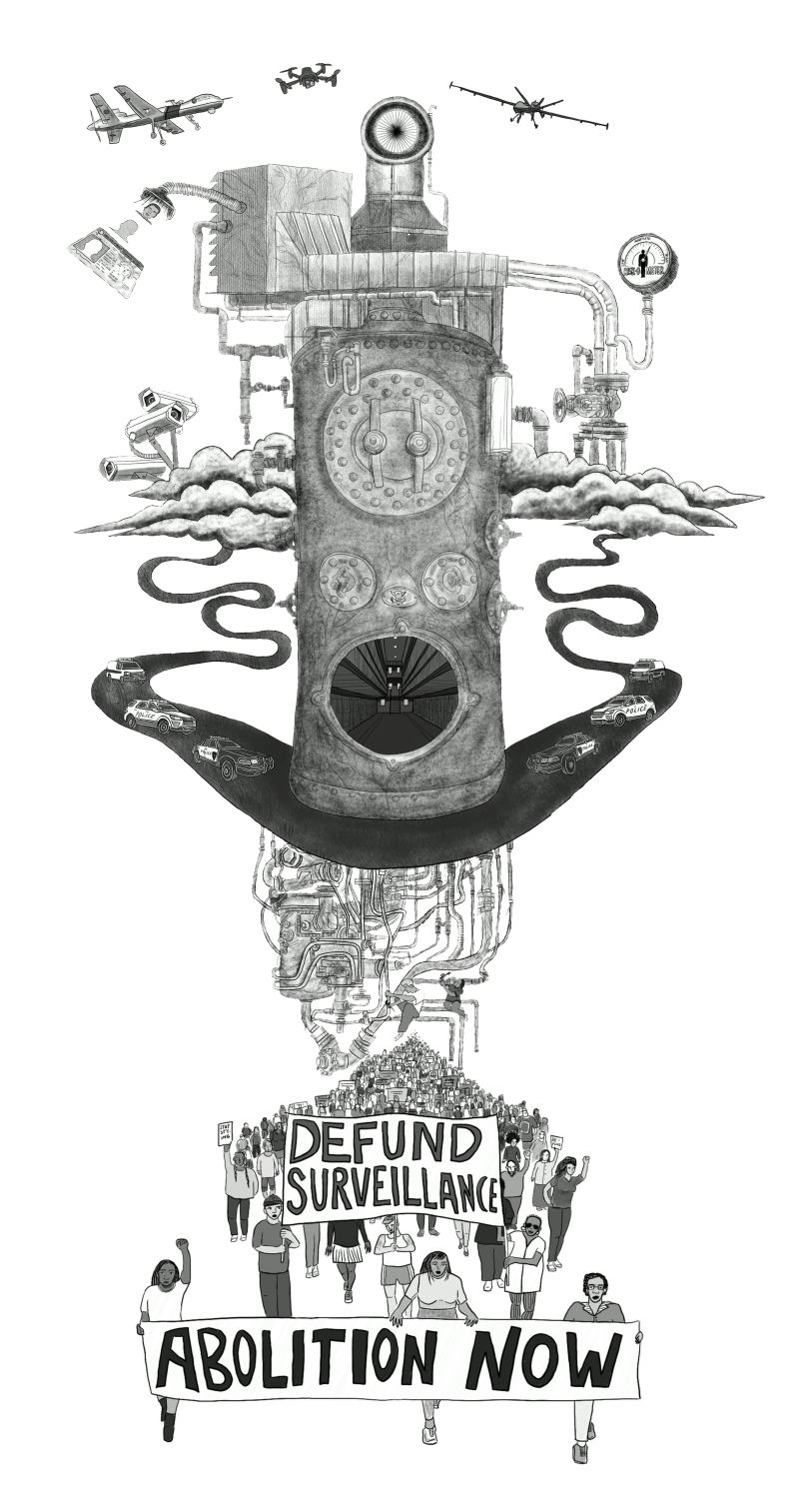Surveillance is active intervention in the form of behavior prediction for modification; it is real-time social control. In every era, criminalizing discourses have made use of pseudoscientific concepts that are supposedly backed by data in order to justify dehumanization, collective punishment, social control and biometric registration of individuals and groups that are targeted by the state. In this tradition, concepts like “mental degeneracy,” “loose family morals,” “criminal,” and “high-risk,” are deployed.
Having a criminal history is the material outcome of decades of racist policing and mass incarceration policies. Today, popular technocratic tools, such as predictive algorithms, relationship-mapping and data-indexing software systems allow current and future arrests to resurrect and wield the full weight of that history, all while using abstracted and sanitized data.


